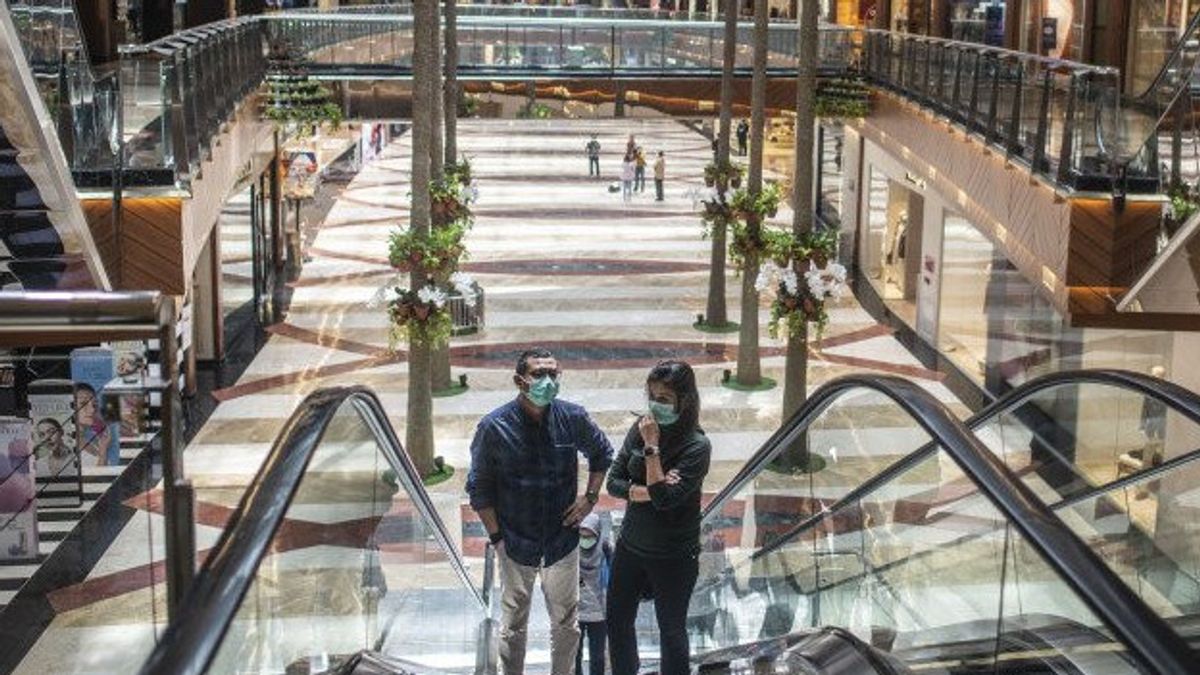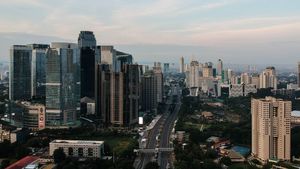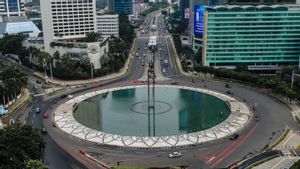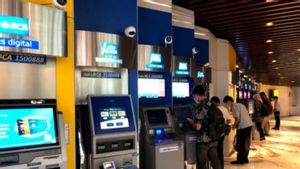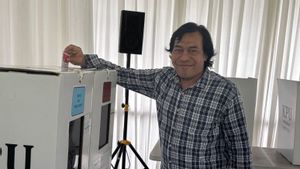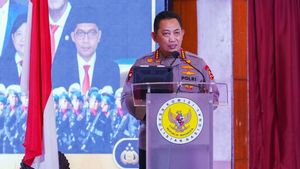JAKARTA - The government through the COVID-19 task force plans to reduce the operating hours of shopping or retail centers. If previously given the opportunity to open until 20.00 p.m., now in the latest Micro-scale Community Activity Restrictions (PPKM) policy, operating hours are limited to 17.00 p.m. The plan made retail entrepreneurs scream.
The general chairman of the Indonesian Shopping Center Retailers and Tenants Association (Hippindo), Budihardjo Iduansjah, admitted that he was confused about what steps to take to maintain store operations.
In fact, said Budi, the level of visits to shopping centers had already fallen before the government's new policy took effect.
"As a result, yesterday the members reported that mall visitors have decreased, even though it hasn't started yet. The traffic has dropped, it's very quiet", he said when contacted, Wednesday, June 30.
These retail businesses, said Budi, have made various efforts to stay afloat for more than a year during the outbreak of the COVID-19 pandemic. Starting from delaying rental payments to supplier payments. Some even borrow their relative's money.
These various steps, said Budiharjo, had to be taken because choosing to close was also not an easy matter for entrepreneurs. In addition to the amount of costs required, also consider the number of employees who will be affected if the company is closed.
"The current condition, if I may say, is that retail is economically bankrupt. The calculation is that the company has gone bankrupt, but the owner borrows here and there. So I'm already bankrupt, but I can't close because the cost is much higher", he said.
Reducing operating hours is not effective in reducing COVID-19 cases
Chairman of the Indonesian Shopping Center Management Association (APPBI) Alphonzus Widjaja assessed that the policy was very ineffective in suppressing the spread of the virus that causes COVID-19.
Furthermore, he said, so far the mall management has implemented the COVID-19 health protocol consistently and strictly. So that it does not cause new clusters to spread COVID-19.
"Currently, the spread has occurred in smaller neighborhoods and communities. So the restrictions must be on a micro-based basis and enforce it to the smallest level in the environment and community life", he said when contacted, Tuesday, June 29.
Alphonzus said that the discourse will certainly hit the national economy, which is currently starting to revive. Not only that, the impact of cutting operating hours will trigger layoffs. This can happen if the economic movement, especially in the retail industry, slumps again.
Therefore, the APPBI urges the government to reconsider the discourse. So, he said, the economy can be saved.
Not only that, Alphonzus ensured that all shopping center managers would comply with the health protocols that have been established as long as these efforts are effective in reducing the number of COVID-19 spreads.
"Don't let big sacrifices in the economy go to waste, because the policies that have been decided are ineffective in reducing the number of positive cases of COVID-19", he said.
Restrictions are made with the aim of controlling COVID-19
Previously, the Head of the Task Force for Handling COVID-19 Ganip Warsito said the government would tighten the micro-scale PPKM rules that had previously been tightened. The government will change a number of rules from the Instruction of the Minister of Home Affairs (Inmendagri) Number 14 of 2021 concerning micro-scale PPKM.
SEE ALSO:
"Later, there will be changes to Minister of Home Affairs Instruction (Inmendagri) Number 14 of 2021 which we are still guiding today. This restriction is also carried out to control so that COVID-19 does not spread further", Ganip said at a National Board for Disaster Management (BNPB) coordination meeting, Monday, June 28.
Ganip leaked a number of regulations that will be tightened in areas with red zones (high COVID-19 risk) and orange zones (moderate COVID-19 risk).
If previously the government issued a policy of working from home (WFH) 75 percent only in areas with red zones, later the orange zone areas will be included in the regulation.
"For example, what will be implemented later is the implementation for PPKM activities. WFH and WFO will be applied at 75 percent and 25 percent for red and orange areas", he said.
In addition, the operational activities of the business sector will also be tightened. The operating hours of malls and shopping centers are shortened. Then, restaurants will be prohibited from serving dine-in.
"For the economic sector such as this mall, it is only operational until 17:00 p.m. Restaurants are only allowed to take away, this is limited to 20:00 p.m.", he said.
As is known, active cases of COVID-19 in the country continue to increase, even on June 30 it reached 21.807. This number is the highest record since COVID-19 March 2, 2020. Cumulatively, the total number of cases in Indonesia has reached 2.178.272.
The English, Chinese, Japanese, Arabic, and French versions are automatically generated by the AI. So there may still be inaccuracies in translating, please always see Indonesian as our main language. (system supported by DigitalSiber.id)
